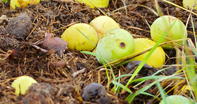
Benefits of Indigenous Food Crops
More robust crops, better suitable in times of climate change. It provides a long-term food security option. It helps to maintain cultural heritage and practices, and buffer against poverty in rural areas during droughts and other crop failure events.It supplies essential micronutrients in rural households. There are various potential market opportunities for new products – such as breakfast cereals. It can provide an additional income for rural communities where wild fruit trees are abundant.
Challenges Facing the Indigenous Food Sector
A shortage of seed and other propagating material. A decline in consumption of indigenous crops leading to a reduction in the production of these crops.Most of the indigenous food crops are largely consumed unprocessed. This is due to a shortage of appropriate processing technologies. Despite the nutritional and economic value of indigenous South African food crops, few were ever commercialised. The lack of advancement of these crops is one reason why the food crops have never entered the retail market.
The vast majority of indigenous crops are still wild harvested from nature. This may result in the extinction of the species especially due to little effort to protect and conserve these plants.
By Marinda Louw